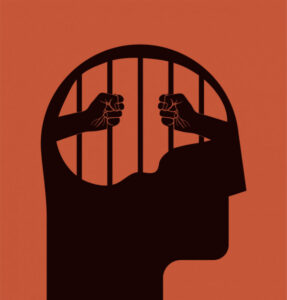The landscape of mental health awareness and treatment has transformed dramatically in recent years. As we navigate through 2025, understanding mental health has become more crucial than ever. This comprehensive guide explores current perspectives, treatment options, and practical strategies for maintaining mental wellness.
What is Mental Health?
Mental health encompasses our emotional, psychological, and social well-being. It affects how we think, feel, act, and relate to others. Just as physical health requires regular maintenance, our mental health needs consistent attention and care.
Key aspects include:
- Emotional regulation
- Stress management
- Social connections
- Self-awareness
- Cognitive function
Common Mental Health Challenges
Recent statistics show that 1 in 4 adults experience mental health issues annually. Common challenges include:
- Anxiety Disorders
- Generalized anxiety
- Social anxiety
- Panic disorders
- Depression
- Major depressive disorder
- Seasonal affective disorder
- Persistent depressive disorder
- Stress-Related Conditions
- Burnout
- Post-traumatic stress disorder
- Adjustment disorders
Breaking Down Stigma
Despite increased awareness, mental health stigma persists. Understanding these barriers is crucial for progress:
- Cultural misconceptions
- Workplace discrimination
- Self-stigma
- Media representation
Modern approaches to reducing stigma include:
- Open dialogue
- Celebrity advocacy
- Social media campaigns
- Educational initiatives
Professional Help vs. Self-Care
Finding the right balance between professional support and self-care is essential.
Professional Support Options:
- Traditional therapy
- Online counseling
- Group therapy
- Psychiatric care
- Specialized treatment programs
Self-Care Strategies:
- Regular exercise
- Mindfulness practices
- Healthy sleep habits
- Balanced nutrition
- Social connection
Building Resilience
Developing mental resilience is crucial for long-term wellbeing:
- Practical Steps:
- Establish routine
- Set boundaries
- Practice gratitude
- Develop coping mechanisms
- Build support networks
- Preventive Measures:
- Regular mental health check-ups
- Stress management techniques
- Work-life balance
- Healthy relationships
- Continued learning
Resources and Support
Access to mental health resources has expanded significantly. Key resources include:
- Crisis helplines: [Insert local numbers]
- Online therapy platforms
- Support groups
- Mental health apps
- Community centers
Moving Forward
Mental health awareness and treatment continue to evolve. Stay informed about:
- New treatment approaches
- Research developments
- Policy changes
- Community initiatives
- Digital mental health tools
Conclusion
Taking care of our mental health is not a luxury – it’s a necessity. By understanding mental health better and actively working to maintain it, we can create healthier, more resilient communities.











































